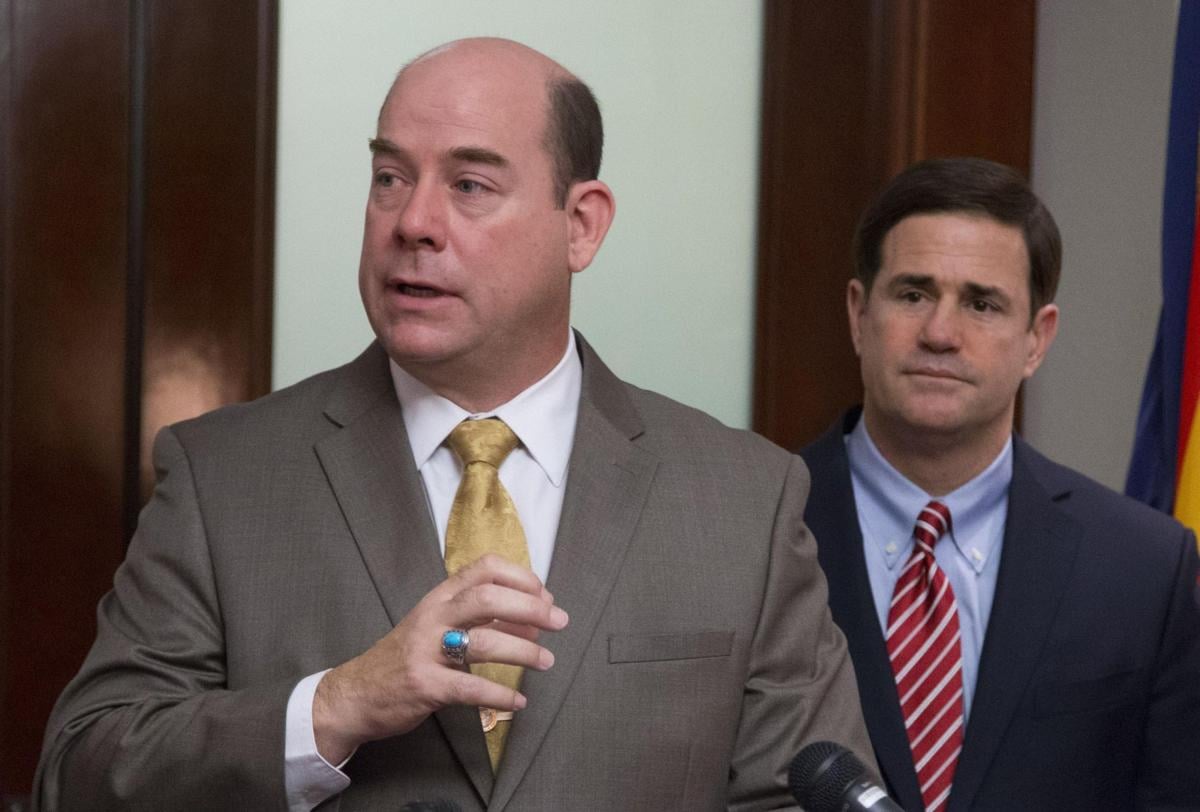PHOENIX — House Speaker J.D. Mesnard is enacting new travel restrictions on members a year after his predecessor was forced to reimburse taxpayers for more than $12,000 in improper expenses.
The new policy unveiled Thursday limits when House members can charge mileage to the state for trips to the Capitol and around their legislative districts. Mesnard said the rules, coupled with public disclosure, should prevent abuse. His new rules do not pertain to the Senate.
Mesnard also has pretty much made the use of state “fleet vehicles” off limits to House members, saying they should be reserved only for the most limited of circumstances.
The speaker said when he took office in January he wanted to revisit all House policies. But he conceded the question of legislative travel — and who pays for it — was a priority after news reports showed that David Gowan, his predecessor, was making questionable claims for reimbursement.
“Obviously, travel in the past, has been a point of controversy with some decisions that had been made previously,” Mesnard said. “I think everybody knows what those are.”
Gowan is gone, having decided to make an unsuccessful bid to become the Republican nominee for Congress from District 1.
Now Gowan is trying to get back to the Capitol with a 2018 bid for state Senate from his old Southeast Arizona legislative district.
The Attorney General’s Office is investigating his use of state vehicles for travel that was not for legitimate state business. A spokeswoman for the agency said that probe is ongoing despite Gowan writing a personal check in January 2016 after the Arizona Capitol Times published an article about the use of state fleet vehicles by him along with other top Republican lawmakers and their staff.
Stephanie Grisham, Gowan’s publicist, said at the time that nearly $9,700 of what he paid was for reimbursements he claimed for mileage actually driven in a state vehicle. That amount, she said, also included overestimating distances on trips in his own car.
There also was $727 for use of state vehicles for personal business and $1,655 for days he had claimed he was working but was not. Grisham, now press aide to Melania Trump, said the problem was due to errors made by staffers in assuming Gowan had been driving his personal vehicle when he instead had a fleet vehicle.
The restrictions Mesnard instituted are designed to keep that from happening, at least in part by clamping down on the use of state cars and making reimbursement requests more transparent.
“A fleet vehicle is not to be used as a substitute for one’s private vehicle or other means of transportation for commuting, or solely for the convenience of the traveler,” the policy states. They also cannot be used because of the distance between a lawmaker’s home and the Capitol.
The policy also requires Mesnard’s permission before taking out a fleet vehicle and pretty much says that won’t be granted to lawmakers traveling alone without another legislator or staffer.
Mesnard said lawmakers will get mileage reimbursed for “official business.”
But he did push through legislation earlier this year that boosts the mileage reimbursement rate for all lawmakers to 53½ cents per mile, 9 cents more than is available to other state employees. Mesnard said that’s based on how much legislators need to use their vehicles.





